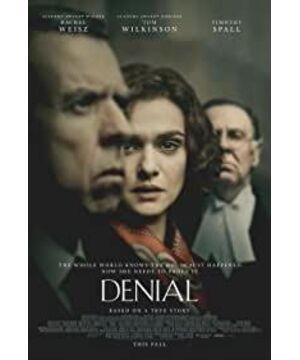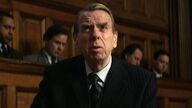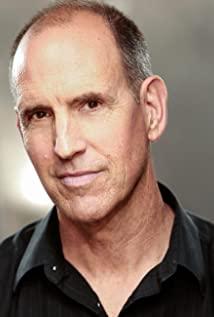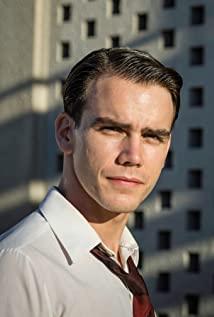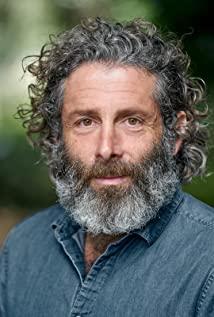On this year's National Memorial Day for the Victims of the Nanjing Massacre, the Sixth Princess broadcast the film. I saw it yesterday in retrospective form. Codewords have arrived today.
The film is still relevant and realistic.
In simple terms, it tells the story of a man who denies the existence of the Holocaust at Auschwitz, and is called "the Holocaust denier" by protagonist Deborah Lipstadt in Holocaust Denial (1993) ". So the "denier" thinks he's been defamed and sues the protagonist. In the end, the protagonist wins the case with the help of first-class lawyers, historians, and experts in various fields.
Deborah Lipstadt wrote Denial: My Days in Court with Holocaust Deniers, from which the film is based.
Isn't Auschwitz a real thing? Why would anyone doubt or even deny it?
In this movie, you can see how such a negative person expresses his point of view:
They only believe what they want to believe, and do not hesitate to tamper with history and evidence to conform to their own ideology and strengthen their so-called beliefs.
In fact, sometimes, these "deniers" are not to express opinions, you can even think that they are grandstanding, but what you don't know is that they can still make money from it.
A few points from the movie that stood out to me:
1. Arguments about the victim's testimony in court. Sometimes we fall into a subjective perception, thinking that those who have experienced it have already stood up. Is there anything that cannot be proved? The movie gives us the answer, letting the witnesses come out to confront the "denier", which will not only weaken the real situation due to the possible uncertainty of the witness's testimony, but also cause the witnesses to be directly confronted by the "denier". Humiliated, fell into their trap.
2. Issues concerning freedom of speech and freedom of belief. In the final statement, the judge's question is also very meaningful. If a "denier" believes in racism or anti-Semitism, he just believes in this and makes speeches that are in favor of his beliefs. Is it a form of freedom of speech? Or in short, can racists make racist remarks? On this issue, the answer given by the court is that there is freedom of speech, but words and deeds that tamper with history and fabricate facts can be blamed.
3. As long as the "denier" has attention, there is no failure. Although he lost to the referee, he still had supporters and gave speeches on various occasions.
The massacre issue involved in this film, I think, will give us a deeper understanding of the Nanjing Massacre and related public opinion, and it is worthy of our careful appreciation.
View more about Denial reviews


